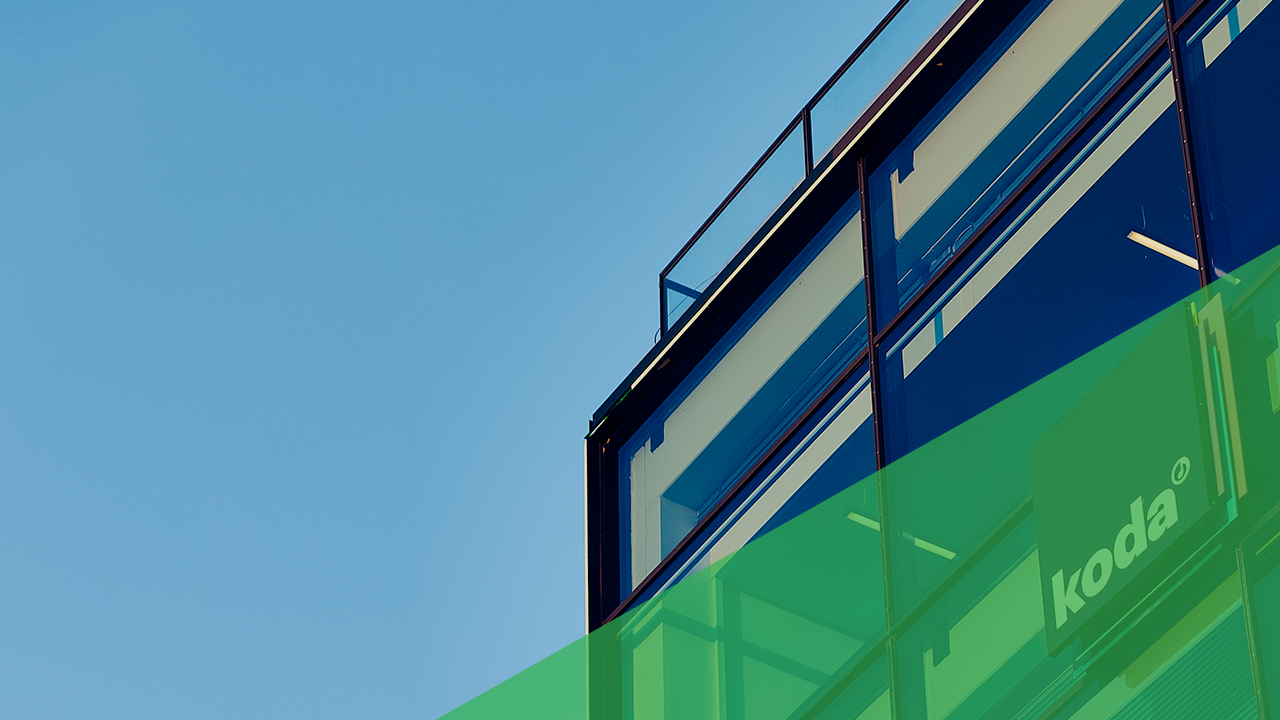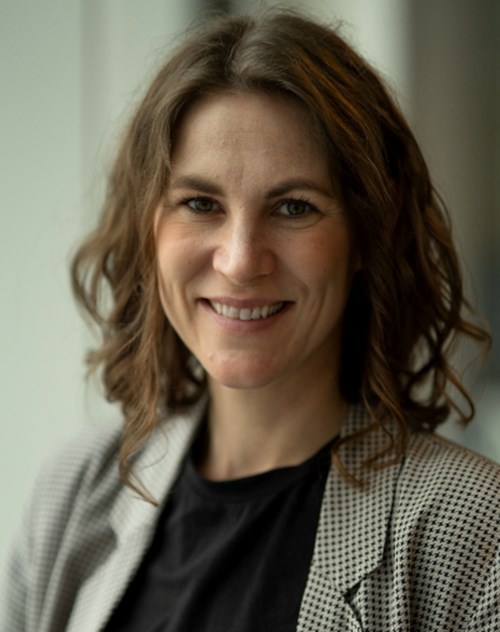
INSIDE Koda
“We want to cause ripples in the water that others can be inspired by”
The time when Koda could work to ‘just’ ensure that songwriters and composers receive fair and proper payment for their music is over. Today, a lot more demands and expectations are placed on organisations and companies. Sustainability is firmly on the agenda, and as one of the central players on the Danish music scene, Koda will actively respond to that agenda and contribute to the solving of some of the social, economic, and environmental sustainability challenges currently facing the music industry and society.
This is the message delivered by Camilla Marie Thiele, who in the spring of 2022 was made Head of Sustainability at Koda. She is responsible for managing sustainability at Koda, and with her appointment, Koda is giving serious impetus to a transformation that began a few years ago with a cultural strategy which, among other things, led to an increasing focus on gender equality in the music industry. A transformation that, at its core, is about Koda making an active, positive contribution to a more sustainable future in terms of environmental issues, social conditions, and the music industry economy.
What are the Sustainable Development Goals?
The Sustainable Development Goals (SDG’s), also known as the UN 2030 Agenda because they run until 2030, are 17 interlinked development goals adopted by all government in the world in 2015. The goals can be seen as an inventory of the world’s biggest challenges – issues that by corporations, organisations, researchers, educational institutions, citizens and many others working in partnerships.
‘We need to take a stand on the societal issues facing our industry – and respond to them. This is a new leadership task for organisations and companies everywhere – including in the music industries – and the expectation is that we navigate with insight and ease. An expectation also shared by Koda’s members. It would therefore be out of step with the times to believe that organisations today can simply stay in the background, without taking a stand on the global and local issues facing us all. If Koda is to continue being a relevant to stakeholders going forward – not least for its members – we see sustainability as an important agenda in that effort,’ says Camilla Marie Thiele.
"We want to work to ensure that Koda can be a positive force on the music scene, in Denmark and internationally,’ she says.
‘It's about taking responsibility for the problems that need to be solved. But, also about looking at how we can use our ability to innovate, our skills, our network, our resources – all the assets an organisation like Koda has – to find solutions that benefit the industry and the world that we are part of’.
Koda can make a difference
The overall framework for Koda's strategic work with sustainability is the Sustainable Development Goals (SDGs). There are 17 global goals in all, across three dimensions: social, environmental, and economic. Each of the goals is associated with a number of targets and concrete problems which organisations and companies can contribute to solving.

INSIDE Koda
In the interview series INSIDE Koda, we give the floor to some of Koda’s experts – the ones who know the most about what’s going on in the rights industry and what drives Koda’s business.
This time we talk to Koda’s Head of Sustainability, Camilla Marie Thiele, about why Koda wants to take a more active role on sustainability issues and contribute to solving some of the social, economic and environmental sustainability challenges facing the music industry today.
Of course, not all the goals are relevant to Koda, which is why Koda has picked out three strategic goals for special emphasis. These pertain to issues that Koda has worked to solve over several years, while other challenges new to Koda will also be addressed. The issues selected include efforts to ensure gender equality, less inequality as well as decent jobs and economic growth.
The work involves internal measures within the Koda organisation as well as external measures aimed at the music industry.
Internally, the work will include taking a critical look at how Koda works with social responsibility in relation to its employees and partners, about transitioning to the greenest possible operation, and about investing sustainably.
However, the external measures are where Koda can really make a difference.
‘We would like to contribute to solving the problems linked to the substantial gender inequality and the limited diversity on the music scene in general. Also, we adopt a slightly wider outlook by contributing to drive a transition towards a more sustainable working life in music. For example, this is about looking at the various conditions that cause difficulties and reduce wellbeing for performers and creators, and it is about ensuring that they receive fair payment for their work when used on digital platforms. These are things we are already working on. They are big issues, but we believe that we can play an even bigger role.
How will these efforts manifest themselves externally?
‘Partly through Koda Kultur. The Koda Kultur set-up is an obvious lever for such work and a huge asset for Koda in terms of driving some of these agendas together with allies. It is about applying a systematic approach in terms of which projects and efforts will receive support. That’s one aspect. Another is that, through partnerships and collaborations, we will apply our knowledge, skills and data to solving these problems, thereby helping to inspire and set agendas in relation to relevant challenges’.
“
We need to take a stand on the societal issues facing our industry – and respond to them.
Camilla Marie Thiele
A specific example of the latter is the fact that Koda has published gender statistics for the past three years. This year, the statistics were supplemented by an elaborate report that goes behind the numbers and sheds light on the barriers that stand in the way of gender equality in the music industry.
‘In this way, Koda is contributing to developing and qualifying some of the knowledge that has fuelled a number of debates and solutions. We would like to do that in other areas too. One example might be within wellbeing, where we would similarly be able to generate awareness on central issues and possible solutions, set an agenda and create a basis for action by others through dialogue, collaboration, and inspiration,’ says Camilla Marie Thiele.
Cooperation is essential
Recognising that these are large and complex issues, partnerships are essential to boost sustainable development, she explains.
‘We want to work in partnerships in everything we do. That’s simply necessary when solving problems across multiple fields and disciplines. There are many stakeholders on the music scene, big and small, and we cannot solve all problems individually. We will look at where we can join up with partners and cause ripples in the water that others can be inspired by and build on’.
‘That’s one example of how Koda would like to work with these issues. By helping to initiate collaborations that can also prompt others to make progress within their field. So that there’s always this ripple effect. It’s about looking beyond your own core product to focus on more long-term value creation instead,’ says Camilla Marie Thiele.
About this series
With this series of interviews, we address aspects of Koda's work that we think our members should know about. Some topics are chosen because they reflect recurring themes and questions in the many emails and calls, we receive from members every day. We are also happy to pick up specific subjects on request. So, if there something you would like us to delve into, and which you think will be relevant, we would love to hear from you.
Contact us at [email protected]



